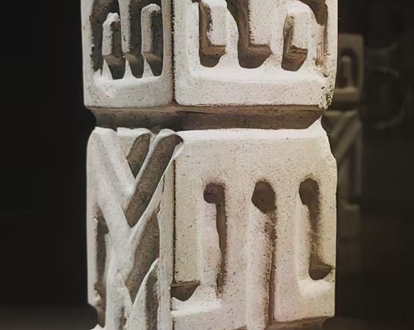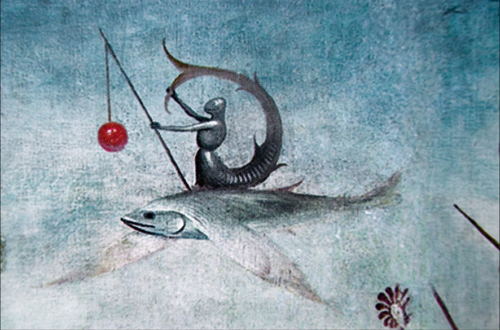(June 2020)
Diego Tapia Figueroa, Ph.D. and Maritza Crespo Balderrama, M.A.
«No one educates anyone -no-one educates himself- men educate each other with the mediation of the world… There is no true word that is not an unbreakable union between action and reflection… Accepting and respecting difference is one of those virtues without which listening cannot be given.»
(Paulo Freire)
What we have learned from our teachers in the social constructionist field is what we systematize and share with you (our readers) and in the different spaces of learning, dialogue and relationship. We consider that these practices are really useful for gaining experience of training and professional updating through workshops and seminars; especially in one of the topics that we have developed and expanded the most: «Caring for the Caregiver» workshops in Ecuador.
The teachers -whose thinking we share- enable meaningful learnings that, with their human and intellectual generosity, their philosophical depth, their rich practical experience, their research contributions, and the construction of new meanings and relational practices, leave a mark and a legacy of social transformation. We mention with gratitude and admiration some of these people: Harlene Anderson, Dora Fried Schnitman, Marilene Grandesso, Sheila McNamee, Kenneth Gergen, John Shotter, Sylvia London, Monica Sesma, Tom Andersen, Michael White, Adela Garcia, Celiane Camargo Borges, Marcelo Pakman, Omar Biscotti, Sara Helena Llanos.
In contrast, throughout this time of curious research, we have been able to verify that the processes and methodologies in workshops and seminars with different people and contexts are often assistential, superficial, and with weak results. Time and resources are wasted; and, above all, the opportunity to contribute consistently and positively. In addition, we have heard from some students and colleagues -with embarrassment- about workshops where the «expert» is a vulgar character, with a patriarchal language and many «good intentions», who believe that to be «popular» means he can afford to say and do anything and that his ignorance and disrespect is part of his «being a free spirit». As it is not questioned, impunity and mediocrity reign supremely and “teach”. These crude manipulative specimens abound around here.
The option of proposing these dialogical encounters with complexity and uncertainty, as participatory experiences (action-reflection-action, a non-hierarchical organization, social innovation, relational ethics, for example) related to the important issues of life and the significant social-relational bonds of the participants; as well as the possibilities of generating transformations, it makes the difference that builds and creates well-being.
We choose other positions from which we work, and – it must be said – they are not always welcome, especially by those who fear losing their power or privileges or simply because they are lazy to work consistently and responsibly and choose to boycott relational intelligence. These are usually contexts where they prefer the traditional, the modernist logic, which leaves them in the silly comfort of not thinking with their heads, because many are forced to be in these activities only for the photo of their bosses, to do private business, fake training and also because they have been trained in social conformism, servitude or because they just want to stop doing nothing in one place and go to get bored in another place and get the respective diploma for their complicity with the status quo.
When we propose a meeting, workshop or dialogue, we try to contribute to creating the relational conditions, the atmosphere of trust, security, and responsible freedom to make a learning community; to tell, describe, narrate one’s own stories. Human events only become intelligible after being history. In these workshops and seminars in which with passion, respect, and desire to learn we commit ourselves, we invite a process of dialogue because it is there where participation, openness, curiosity, and creativity are enhanced; and we invite participants to resignify: resignifying experiences and stories, which means attributing a new meaning to these relational contexts, learning to interconnect in different, innovative and creative ways, as well as finding new perspectives and developing other possibilities.
We care about contributing to each participant of our workshops and seminars restoring their power of doing, telling them they are the protagonists of their history. Aware that we are responsible for the relationships in which we participate. With joint reflection, new meanings, possibilities, and relationships emerge; this is how we create other futures.
In that context, here are some traits about this practice with these different perspectives:
- Respond to the interests, needs, and expectations of the participants. You don’t «teach» someone something, you learn it together with someone. Respond each time to what the particular occasion demands. The method, in collaborative practice, is always «on the way», it is always a «premiere», it is always used for the «first time» that arises from a particular historical dialogical situation.
Methodological Tool: Process Generating Questions
| What are we here for? Am I here, for…? It is interesting to know the particular reason why everyone is here. | What would have to happen so that when this is over, you feel satisfied? | How can you contribute, in a meaningful way, so that what happens here, is what you expect, and what you would like? | How to propose a language with which we invite the other to feel involved? | How do we invite a person to enter into a relationship? | How to start this conversation to build something meaningful? |
| How do we look, listen, and respond? | What internal dialogues were you having while listening to me? | Can you think of a moment of learning, a different reflection, that you are going to take with you from this meeting? | From our initial questions: are they still there; have they been transformed; is there anything you want to take with you? | How do you see a community in which we all feel understood and included? | Reflection on what you have experienced: What do you feel is useful about here? |
- We work on a process with groups of people, facilitating, generating questions; people who are invited to talk thoughtfully, based on these questions, about their social practices, their meaning, their impact, and relational consequences. Asking ourselves: How to bring our resources into this dialogue, which has a transformative purpose? And, an ongoing question: How come I’m relating here?
- We seek to interconnect with each other in new situations in which we will participate as creative and innovative subjects to generate contexts of social well-being, in a space for the exchange of knowledge, experiences, and social practices. It is to open spaces of relational dialogue in which participants engage and share their daily experiences, in their contexts of local culture, to notice the similarities, differences, and specific richness. Also, to be aware of one’s own responsibilities and what will need to be transformed.
- These meetings – workshops and seminars – are oriented and based on certain relational principles: respect, dialogue, critical reflection, creative participation and contribution, recognition-acceptance-legitimization of the other, flexibility, and curiosity. In this relational climate, new meanings and new practical possibilities begin to be co-created.
- A perspective is fostered, a dialogical movement that emphasizes social and relational resources and strengths, positive exceptions, rather than deficit, complaint, guilt, victimization, subjective servitude; the ability to listen deeply before responding, and to respond with consistent arguments, is valued and promoted.
- It is to open an experiential space for creative dialogues, which develop a sense of belonging, a commitment, and a relational ethic, with active, assertive, reflective, and creative participants with whom it contributes to increasingly enhance their autonomy, independence, and critical and self-critical spirit, taking into account their co-responsibility for the well-being of others.
- They are organized based on communicational horizontality, the democratization of the word, the right to the expression of the multiple voices present, human and intellectual honesty; promoting the creation of social networks based on respect, relational bond, affections, solidarity.
- As we already proposed in the article Dialogic relational research, a process based on successful collaboration, which is built with others, from a position of curiosity, respect, openness, acceptance, reflection: it is to have a sense of participation that consequently invites a sense of belonging. That invites a sense of contributing. That invites a shared responsibility. It co-constructs new meanings. Which means a transformative dialogue. Connecting all this leads us to: Reflective pragmatics; meaningful dialogues; alternatives; results; solutions, relational ethics, common well-being; possible futures.
- Sheila McNamee (2012) says that there is no attempt to reach a consensus between different beliefs or values of the different participants; nor is there an attempt to determine the values and beliefs of the community that are «better» or «right.» The constructionist orientation is towards multiplicity, diversity, difference. The agreement is not supreme; it’s curiosity. The challenge is to open up relational possibilities rather than closing them. For the constructionist, reliability and validity are replaced with the criteria of utility (for whom is this information/knowledge useful?) and generativity (how will this information/knowledge help this community «to continue together?»).
We reiterate this because we believe that this position is useful for practice, whether for workshops and seminars, for therapy processes, (see here, 17 April 2020):
- Work with a sense of context, put stories in their contexts. We can achieve something useful if we can see particular situations in particular contexts. To organize the conversation, we can ask ourselves these 3 initial questions: a. What is the context of the dialogue? b. Who are we in this dialogue? c. What is the project that we can and want to share?
- We ask ourselves from this relational ethics: Could we collectively make something more, a significant difference that contributes to creating a deep connection, a new meaning to one’s own life? How to contribute with our questions to untie the relational knots, which oppress people’s lives? What we are building together invites us to be more attentive to the process of relating.
- The questions of reflective pragmatics, about what we do and say in the process, are: How can we take care of our relationships so that we can jointly create life, meaningful life? How to use these ideas, not only to liberate ourselves but to make them useful to society? How could it be otherwise? How can we build together, relational processes that are ethical, aesthetic, politically and socially liberating, poetic?
- hat answer do the participants give each time about what they take with them from the workshop or the seminar, about the process; and what do I take away, as a facilitator, from that meeting? After each workshop or seminar that, in reality, from our perspectives, we create a learning community, in which we emphasize «Caring for the Caregiver», we invite you to answer these questions: What kind of future can I contribute to; What different transformations do you need to generate for the construction of a good life, with joy, creativity, and freedom?

English translation of Bruno Tapia Naranjo

